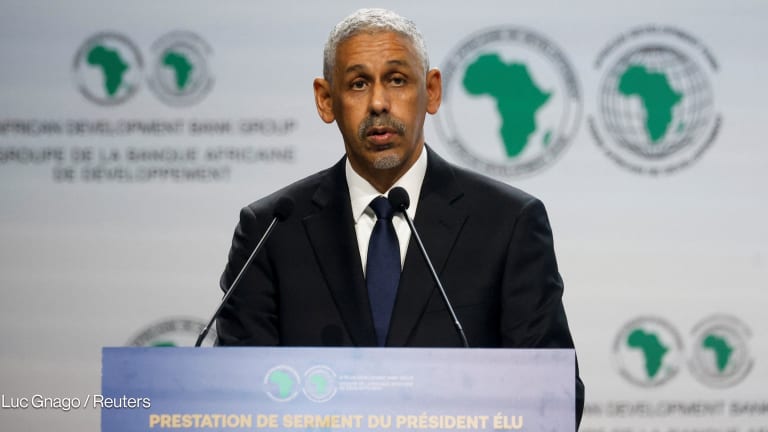World Bank President Robert Zoellick has pledged to seek ways of giving quicker financial support to African states struggling after conflict in the world’s poorest continent. Zoellick met finance ministers from Liberia, Togo, Guinea, Sierra Leone and Ivory Coast on Jan. 29 during a brief visit to Liberia, the second stop on a tour of African countries. The World Bank chief, who has already visited Mauritania this week, will also travel to Ethiopia – where he will attend the African Union summit – and Mozambique. Since his appointment to head the World Bank more than six months ago, Zoellick has said the Bank needs to be more flexible when dealing with fragile or post-conflict states, including making financing available to them for longer periods.
Rising world food prices could make it easier to reach a deal in long-stalled global trade talks because they reduce pressure to maintain farm subsidies EU Trade Commissioner Peter Mandelson said Jan. 29. Prices were forecast to continue rising until 2016, reducing the need for governments to support food prices, he said. “The arguments in favor of protection and price support are not what they were when we started out,” Mandelson said after talks with Australian Trade Minister Simon Crean. He added high prices should make it easier for the US to lower its farm subsidies to within a range proposed by World Trade Organization (WTO) mediators last year, a key part of the puzzle that needs to be put together for the Doha deal to be done.
Global economic growth will slow significantly this year, but the US will avoid recession, the International Monetary Fund (IMF) forecast. Slower US growth and credit-market turmoil stemming from housing-market woes also will hinder the global economy, it said. The IMF now sees world economic growth slowing to 4.1 percent this year, down from 4.9 percent last year. The reduction is the second cut in a row in the IMF’s estimate for this year. The estimates were included in the semiannual update of the IMF’s World Economic Outlook. The next update will be issued in April.
Singapore, Norway and Abu Dhabi have been asked by the IMF to take the lead in drawing up disclosure benchmarks for sovereign wealth funds, Lee Kuan Yew, the former Singapore prime minister and chairman of one of the world’s biggest sovereign funds, has said. The IMF’s move comes as countries with sovereign wealth funds and recipient states skirmished at the World Economic Forum (WEF) in Davos over the need for a code of conduct for such state-owned investment funds. The US Treasury and other advanced nations insist on the need for guidelines to cover the transparency of the funds and to prohibit aggressive behavior by the funds as investors.
Poorer nations need more support to retrieve billions of dollars of stolen assets spirited away to global financial havens, officials at a UN anti-corruption conference in Bali said Jan. 29. The task had been made tougher by the growing complexity of the world’s financial system and the emergence of new financial centers prepared to take shady funds, they said. Delegates from over 100 countries are sharing their experiences and strategies on Stolen Asset Recovery (StAR) Initiative at a ministerial roundtable. The StAR Initiative aims to help poorer nations retrieve assets spirited away to richer nations. Ngozi Okonjo-Iweala, a Managing Director of the World Bank, told delegates that international institutions and the private sector must also contribute because they hold most of the USD 20-40 billion in developing country state assets stolen each year.
Climate change will have potentially devastating consequences for human health, outweighing global economic impacts, researchers said on Jan. 25, calling for urgent action to protect the world’s population. McMichael, from Australia’s Centre for Epidemiology and Population Health, said increased wildfires, droughts, flooding and disease stemming from climate change posed a much more fundamental threat to human wellbeing than economic impacts. A 2006 report by former World Bank chief economist Nicholas Stern said climate change had the potential to shrink the global economy by between 5 and 20 percent, causing a similar impact to the Great Depression.








